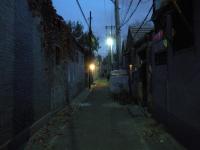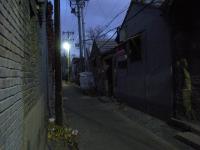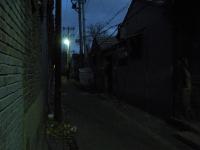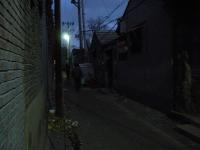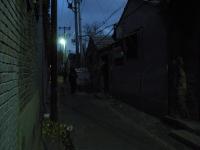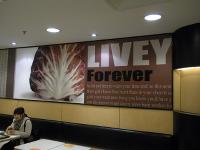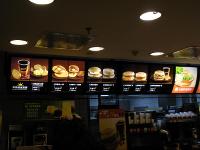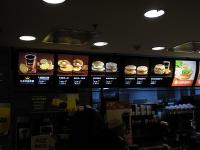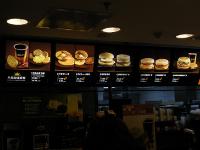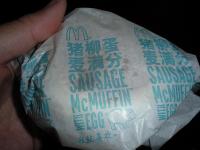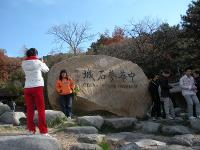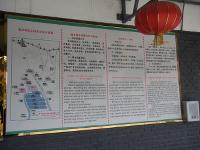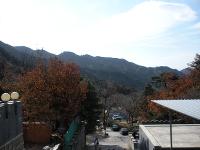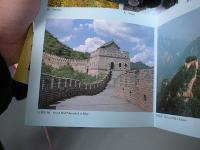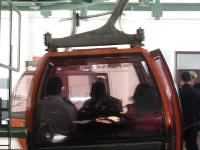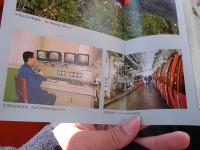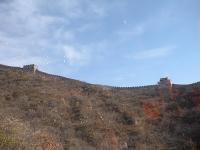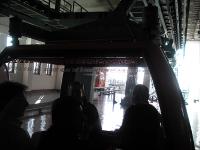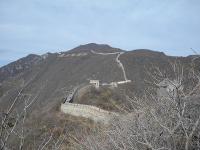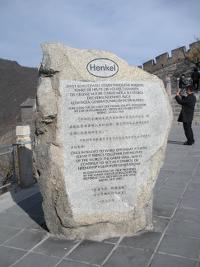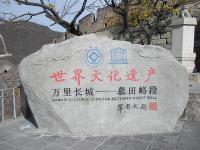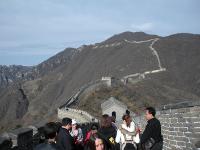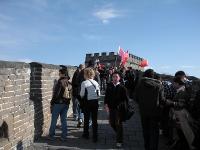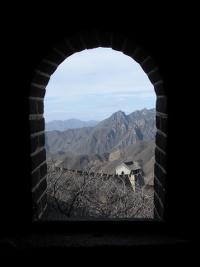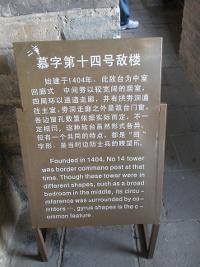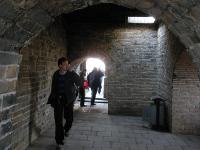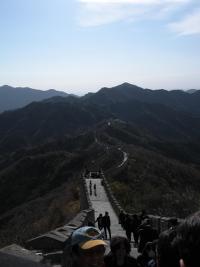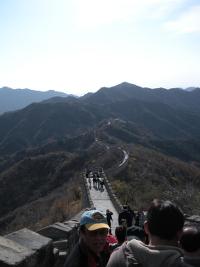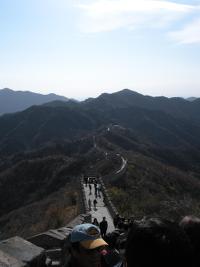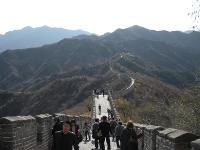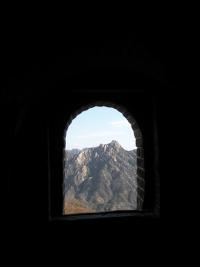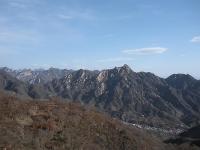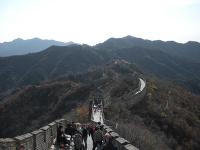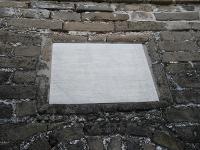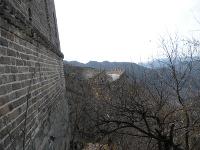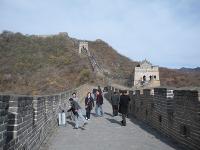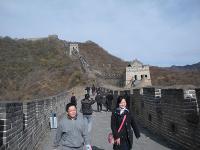***
France/Spain 2011
Day 2 - 18th March - Colmar, Unterlinden Museum (Part 1)
Starhub informed me that it would be more expensive to call Singapore from France than to make any other sort of international call. Way to go.
The Ciarus hostel included breakfast (a croissant, a cut length of baguette and fruit/jam), so I dined before setting out for Colmar (a town to the south).
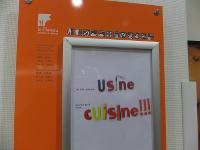
"Ici c'est pas une usine. On fait de la vraie cusine !!!"
("This place is not a factory. We cook real food!!!")
The croissant was flakier than the one I had last night, because there had been no heat light at Paul's. The baguette length was cold but still reasonably crusty.

Unfortunately the fruit looked like it'd seen better days (it looked worse IRL).
The ticket machine at the train station rejected my credit card and I had to go to the counter, so I missed the 7:51am train to Colmar and had to take the 8:19am. On the upside I got to walk around.
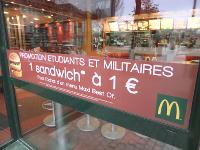
"Promotion Etudiants et Militaires"
("Student and soldier promotion")
1€/sandwich is not bad. Maybe soldiers are paid as much as slaves in Singapore - but that seems impossible.
The fine print actually says what you buy at this price is identical to what you'd buy at the normal price.

The ugly Strasbourg gare (station)
It's a glass shell and the real station is underneath
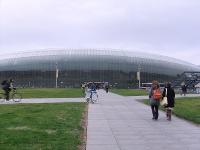
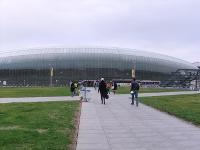
Gare de Strasbourg
I then took the train to Colmar.
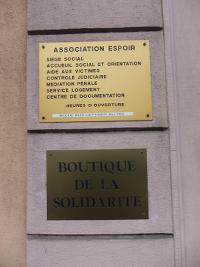
"Association Espoir. Boutique de la Solidarité" (Hope Association)
It provides social services
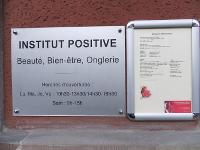
"Institut Positive. Beauté, Bien-être, Onglerie"
("Positive Institute. Beauty, Well-Being, Nails")
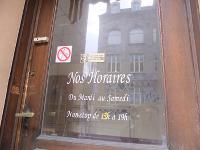
Good life - they open Monday-Saturday, 1pm-7pm.
Also they have a cute "no pets allowed" sign which reads: "We regret that we cannot accept your friends"
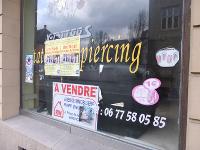
"Prix Sympa" ("Nice Price")
1€ Coke ad
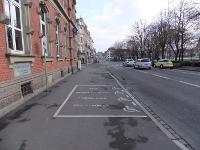
"Vous prenez ma place. Prenez aussi mon handicap" ("You take my parking spot. Also take my handicap")
Shaming people into leaving handicapped places empty on Avenue de la République
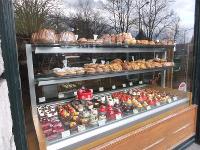
Pâtisserie window
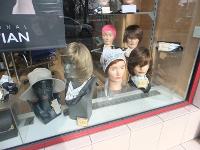
I love how the mannikin heads come in multiple skin tones: black, light black, nude, beige, North African.
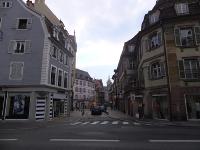
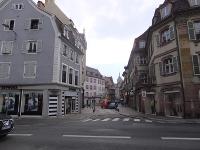
Rue des têtes (Road of Heads)
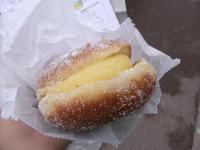
Beignet à la crème (Cream donut)
At the tourist office, I found out that the Castle of Haut-Kœnigsbourg, which I wanted to visit this day, did not have shuttles going to it during the week; I had decided to venture out of Strasbourg this day (Friday) instead of the next (Saturday) because the weather was supposed to be better. This threw a wrench into my plans.
I resolved to ponder this issue later, then went to the Unterlinden Museum, arguably Colmar's star attraction.

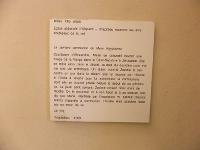
The Last Communion of Marie the Egyptian, 12th c.
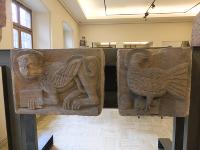
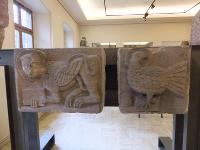
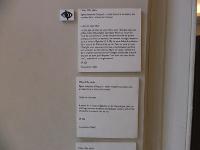
Lion of St Mark, Eagle of St John. 12th c.
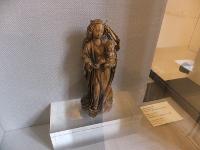
Virgin and Child, early 16th century
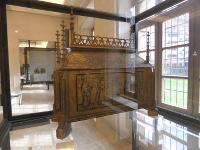
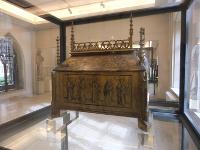
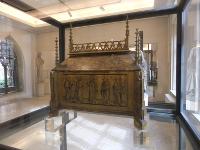
This box was unlabelled
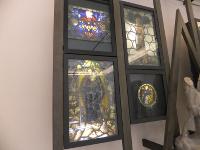
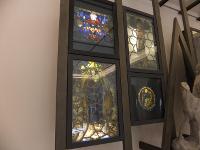
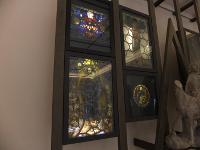
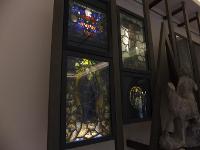
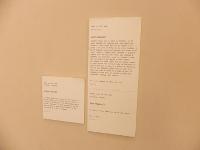
Stained Glass with Virgin and Child, St Sebastian and St Philippe (?). Early 16th/second half of 15th c.
I then tested out my new camera's HD video function on the cloisters.
HD
Non-HD (big difference)
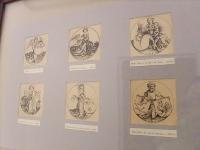
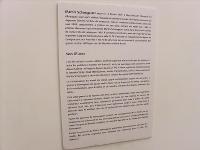
Martin Schongauer drawings

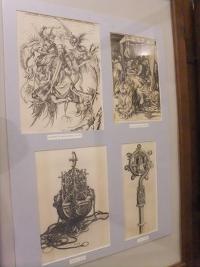
More Martin Schongauer drawings
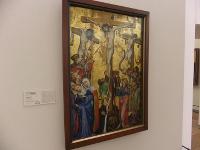
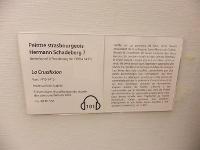
The crucifixion - a Strasbourgian painter. 1410-15.
The good thief and bad thief flank him. On his right is the good one - you can see the souls escaping.
The Dominican monk at the bottom is presumably the one who commissioned this piece. The breath of the lion in the cave breathing on its cubs is like that of God bringing stillborn babies to life.
The painting reflects post-Black Death morosity and is in the International Gothic Style.

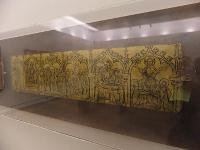
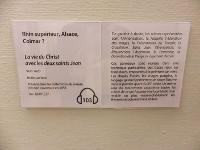
The Life of The Christ with the 2 St Johns. ~1420
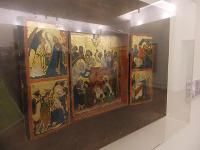
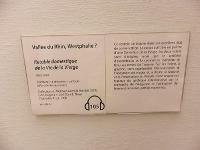
Altarpiece: Life of the Virgin. ~1420.
Christ is holding the Virgin's soul represented as a small child

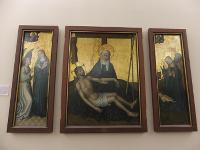
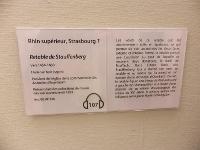
Stauffenberg Altarpiece. 1454-60.
The gold represents timelessness
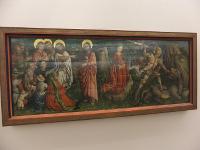
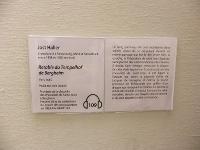
Altarpiece of Tempelhof de Bergheim. Jost Haller. ~1445
This is the desert as imagined by Northern Europeans who had never seen one - it looks like a clearing in Vosges
St George is here because he's the patron of the Knights of St John


